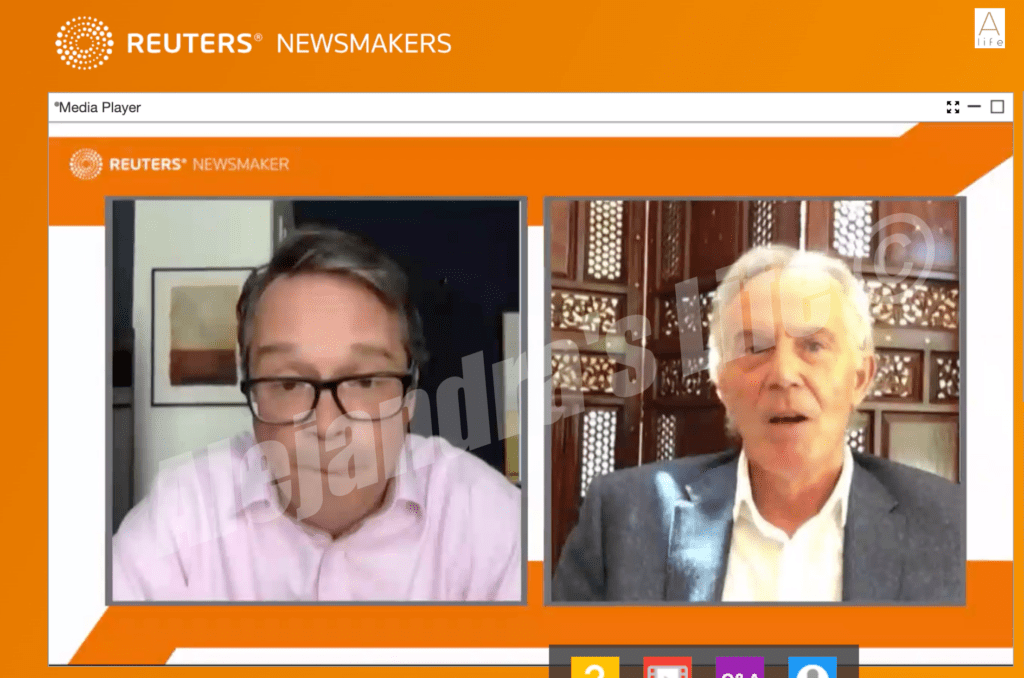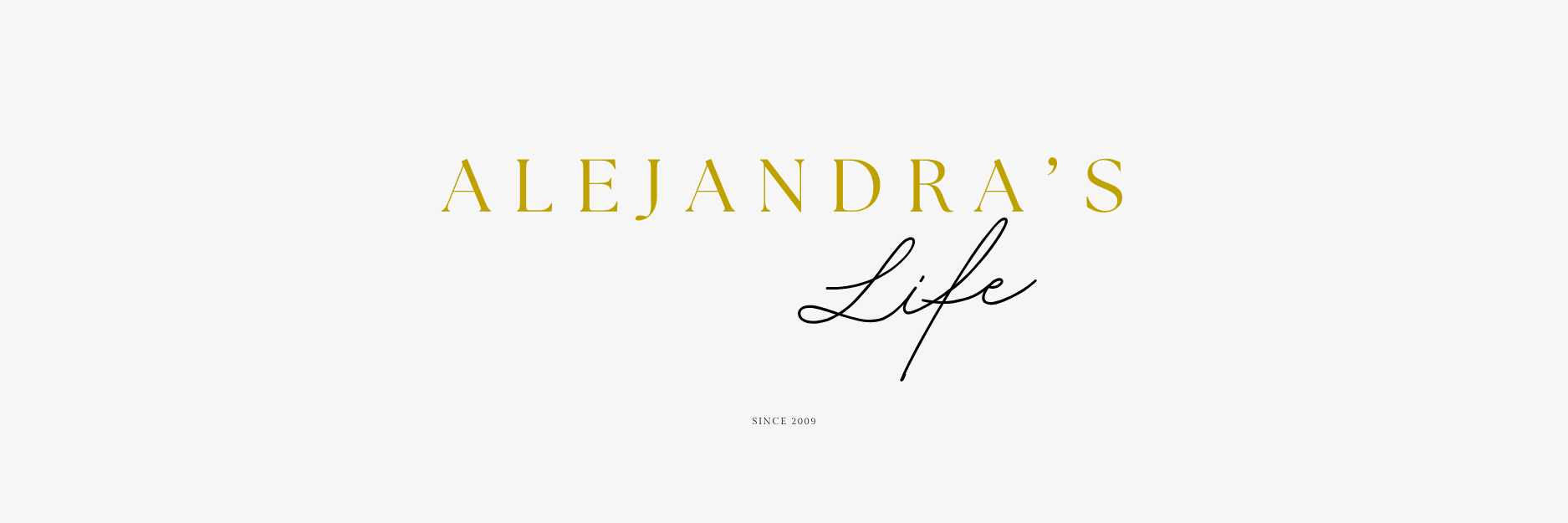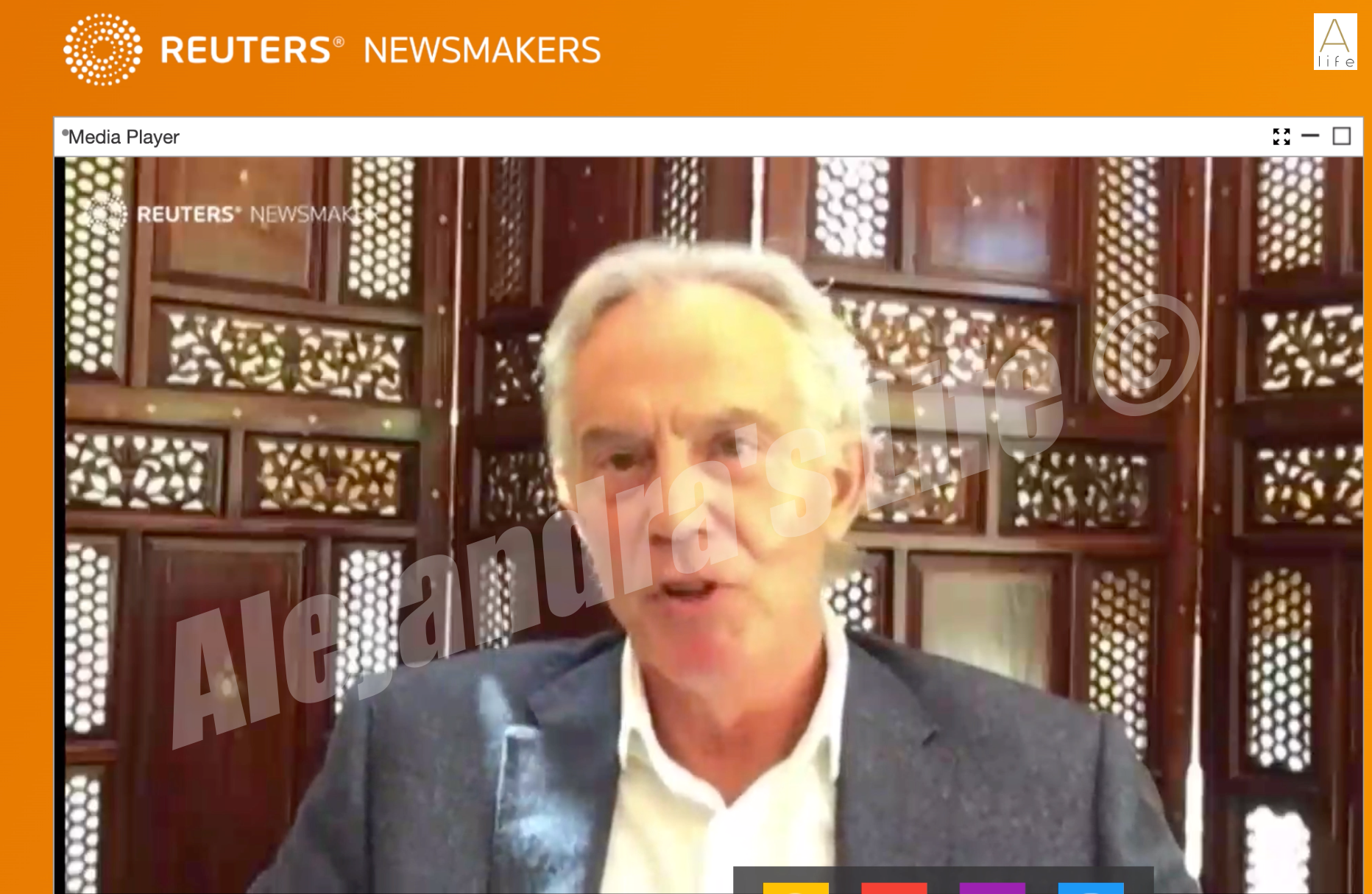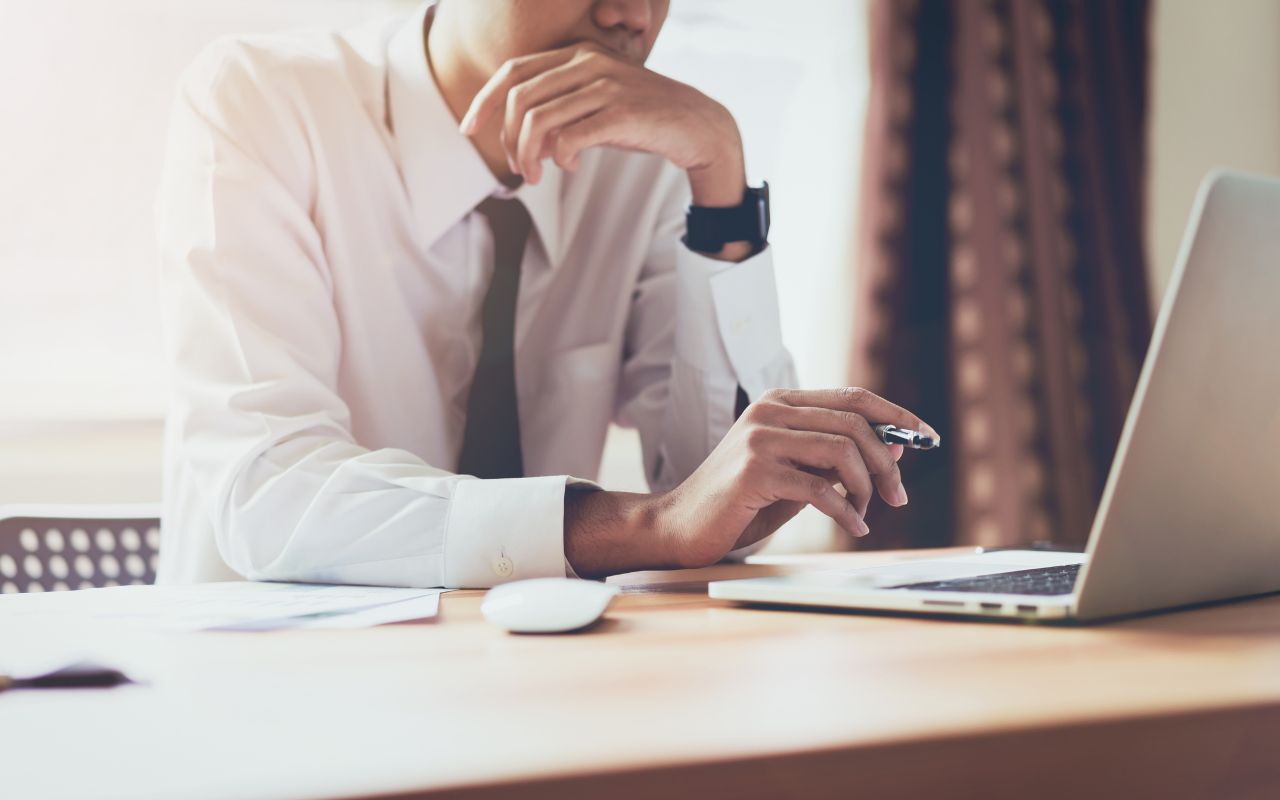I had the opportunity to work along with Reuters on a virtual interview with Tony Blair, where many journalists and I could ask several questions.
Tony Blair is the Executive Chairman of the Tony Blair Institute for Global Change & Former Prime Minister of the United Kingdom, and on this interview, Axel Threlfall leads this 45 minute conversation in a wide-ranging discussion with Mr. Blair on global leadership and the restoration of a robust international dialogue post-pandemic, navigating the continued rise of nationalism and how the Tony Blair Institute for Global Change is supporting leaders across the globe in their fight against Covid-19.
This interview will be summarised and partly quoted as per the interview.
Resetting the West’s Relationship With China
We start by talking about the new report on Tony Blair Institute that came out on the day of the interview, about the West’s relationship with China during this moment, and how China has grown the past decades and how this is the hottest issue right now.
In a poll in the same report, demonstrated that US, UK, and Europe had a more aggressive view on China, in a hostile attitude towards it. Some people actualize using analogies of the Cold War era giving misleading and dangerous points of view and beliefs.
In the other hand, China has grown an aggressive posture, imposing certain relationship status and trying to control certain agreements.
Mr Blair says “the poll is just a people opinion issue, not a policy making issue (…) but still we need to sort out things with China not only for the Pandemics but also for Climate changes, the pledge towards economy (…) but creating a hostility environment toward China is not really sensible”
Do you think that the partnership and affairs with China is over?
TB: “I think we are in a new Era yes, I am sure (…) There are two things that happen: 1 is justified, 2 is difficult for us. China is a recent power, with many reports in how China is the biggest in supply chains, economy, and increasing their size of military (…) They are the largest Investor-buyer now, besides of being an ancient civilization and one of the biggest populated country.
The second thing is that when I came to power 20 years ago, we always thought that China would develop economically and politically, and in a more open direction (…) but since the Communist Political party has tightened its grip on China internally and the government relationship is more assertive internationally, and therefore the combination of these two factors: much greater power but power exercised in a way it seems to be in a confrontation way to western values. Obviously that has changed the whole dynamic of it.”
Well, how do we deal with China? What is the Balance in here?
Speaking about President Trump towards China lately and his responses.
TB: “Well this is the essential question. You need a strategic response not a series of pop-on reactions (…) You need to be prepared to confront China whether they are acting contrary to the acts and values of the west and western community; you have to be able to compete with China, because there will be this competition, and there is no doubt about it at all like technology, economically, more so geopolitically as well. (…) You have to reserve yourself for this cooperation (…) and for this the West has set a strong set of alliances to will be able to handle China in however and wherever China direction leads.”

About Huawei and the 5G: Pro-US or Pro-China? What suits best the UK?
TB: “We need to make the call and is Pro-US in here (…) Huawei have an infrastructure that is quite embedded, and the truth is that is a lot cheaper to the alternatives that are being developed up to now. And one of the most amazing things about 5G is that the West has allowed this advantage, this superiority to be gained (…) America feels very strongly about this and they feel strong enough for good reasons (…) the British governments has been trying to navigate with this issue and it’s hard for us.”
So what you say is that the British Government should be harder on the Huawei?
TB: “What I am saying is that the UK government is trying to restrict as far as possible (…) what if they can do and try it successfully is now the question (…) the UK will want to be with America on security questions. We should never confuse the Chinese People with the Chinese Communist Party. Depends on the degree China and its rulers also, take account at they are going to be operating in a much more challenging environment and also adapt their behaviour (…) another thing we think is crucial is that we mustn’t lose sight of the need to engage with people (…) as the 2 ways of students from the West to China and China to West (…)”
“You can’t treat China like the Soviet Union.”
Talking about Cold War, we are in a kind of Cold War moment, how long till it develops to an actual Cold War?
(one of Alejandra’s questions)
TB: “Well that actually depends on our leaders and China’s leaders (…) you’re always working on the relationship, but always in a position of strength (…) the Key points for the US is to be alliances with Europe (…) one of the things about Europeans is that they are anxious about Chinese power (…) and for that is important for the US and Europe to be together (…) it is possible to go back after a cold war and build a better relationship (…) with a strategy and building allies.”
Why is Western Democracy not coming down much more heavier on China as a result of what has been going on?
TB: “Well I think they are coming down quite down on China! (…) There are much more reactions and confrontations towards China.”
Regarding the incident with India-China border:
“What you will see is that the West relationship with India will strengthen significantly, and that is a long term development (…) but in the end, you need to look economically at sizes and figures of China, to realize is important to have the ability to work with China whether and is necessary to be so.”
Is the US in a position to lead or does it want to lead? has the US lost its agenda at the time being?
TB: “People often ask me this. I think it goes in cycles with the US. And I think that right now, there is a move of more an isolation from the US position (…) but these things change. It’s not remotely in the US’s interest not to be a key player in the world. (…) I think America will remain engaged, it’s bound to it as it has its own interest on that. (…) America is going to respond by building alliances in other to relegate the interest of their own country. (…) in this administration on with the new administrations, this will happen.”
Regarding the US presidential campaign and about China:
“I think that China and its power needs to be dealt with and competing (US) with each other on that.”
Is the UN, and any other Neutral bodies, are they redundant now?
TB: “They are not redundant, but they do get affected by this dispute (US vs China). This is very difficult by the International Government: it’s that your 2 biggest players in the arena are in confrontation and it’s tougher to make the institution works effectively.”
About the allegation of John Bolton’s about Donald Trump: “being easy to outsmart”, “stunningly uninformed”. Baring the simplicity of Global decision from Washington. If this is indeed true, how worried should we be about that?
TB: “Look… (…) America is resilient and has a different strength. Either you’re pro or against Trump, that strength will not disappear. (…)
Now would I like to see a much more active America on the world stage: well yes! Building alliances with others? Yes! They can, should go on that as it’s much important for the West bounds and interests but …”
Regarding the Pandemic: When protecting their People and their Economy: who got the best balance?
(one of Alejandra’s Questions)
TB: “The people that got the balance right are the people that lockdown fast. And the people who could get the easing of the lockdown right, and you need to do it, will recognize that we will be living with this disease for some time and therefore, as I call it an infrastructural containment in order that you can ease responsibly.
But the essential dilemma for policy makers about covid19 disease is serious enough that you don’t want it. So you and I, both know people who had it or had it badly, probably I know, certainly died from it, so you know enough about it to know you don’t want it. In the other hand (…) we cannot shut the whole world down and have enormous damage on your economy for a long period of time. (…) In the end, it’s not lives versus livelihoods, it’s calculating the risk. You carry on with this lockdown and this won’t be moving along, the collateral damage of the economy, health and every other part of society (…) I am really really worried about that. I am in favour of those governments that are effective and competent all the way through: shut down fast, Mass tests, get the lockdown eased as quickly as you can but with the containment in structure in place.”
Right, but you wouldn’t be putting the US and UK in that list?
TB: “Well we have been badly hit both of us. (…) and yes, the response from the UK government was slow yes. (…) This is the toughest challenge I have seen governments take. (…) We did lockdown slow but one thing I plea is that we (UK) need to do mass testing now and fast and build what I call the containment strategy. We can open schools and businesses, but with the notion that when there comes an outbreak, and they will come, we have a structure already in place and can be squatted fast.”
“With all of this, we could see that governments united and worked out things that would normally take years and they did it for example in 10 days. We can see a unity in all the governments working together. For example in Education, there were things implemented that we can now use it. (…) In the end of this all the reforms that the government had previously working, need to be done as soon as possible.”
About the 100 of thousands of deaths in the UK, if you were in the government, do you think you should resign?
TB: “Look…I think we can’t talk in those terms. If I would be disappointed and anxious about the situation? Yes, of course! But what will happen is that we will be looking back, to see what could have been better, but the likelihood of an open country like the UK it’s it will always be hit hard like this. (…) I am sympathetic to the problems going into the lockdown because at that time there was a lot of uncertainty about the disease. I am much more understanding of that. What will not be acceptable now is not getting the easing right.”
Interview on the 25th of June 2020
Thank you to Reuters






 Em Português
Em Português En Español
En Español